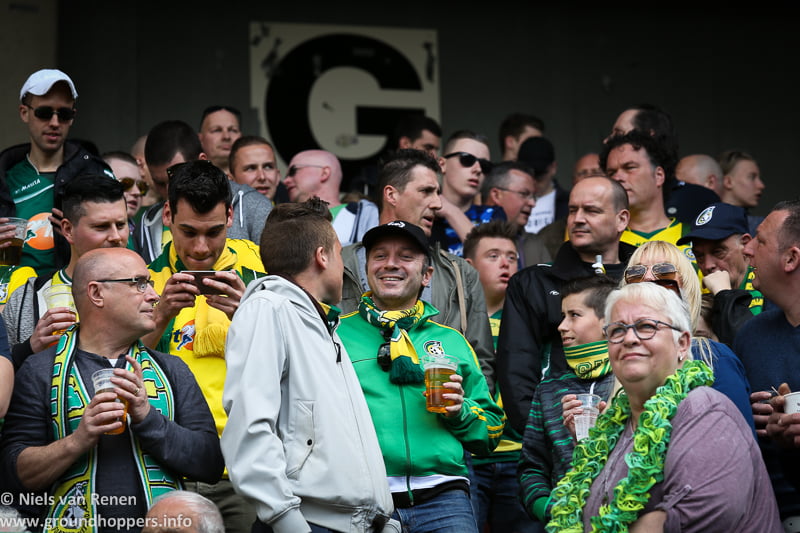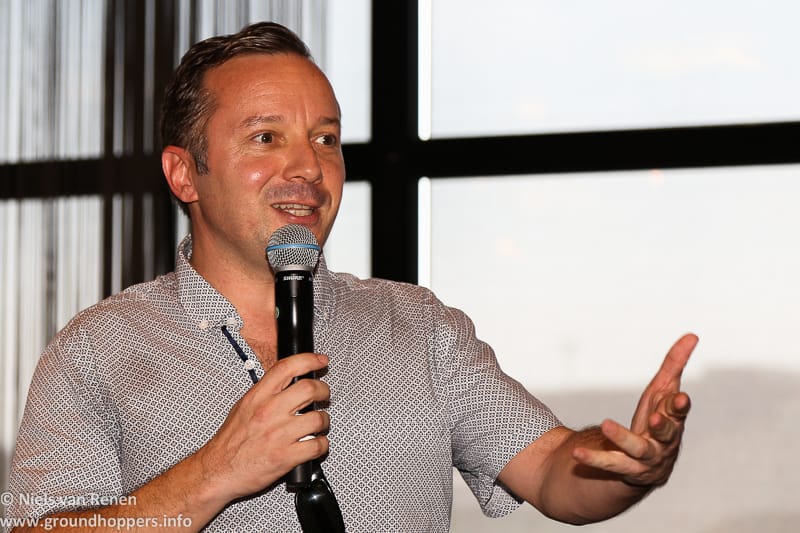It is one year since Isitan Gün arrived at Fortuna. Fortuna Online recently spent two and a half hours with Isitan to reflect on the first season and look forward to next season. Today we present a summary of his reflections on last season; tomorrow we present his views about the future. Voor een Nederlandse versie, zie: “Isitan Gün: één jaar onderweg (deel 1 van 2).
Why did/do you want to run a club like Fortuna Sittard?
In my days at Galatasaray (Isitan worked for Galatasaray between January 2013 and November 2014 as Director—Strategy, Project and Business Development and as Chief Operating Officer, Fortuna Online), the club was looking to develop a strategic partnership with a smaller club outside Turkey. I was a member of a small group of people that explored cooperation opportunities—predominantly in Germany. Since I specialized in finance, I had a chance to observe how smaller clubs are run, and thought that if you manage a club properly, it can be a sustainable business, satisfying fans, players and all other stakeholders.
Then why specifically Fortuna Sittard?
A few years went on in which I did other things, but the desire to run a small club was still alive. Hence, when I was made aware of the opportunity to be involved in Fortuna Sittard, I looked into it. I was not actively looking for a club at that time, so it was not a tradeoff between Fortuna and some other club. Given my experience in terms of looking at smaller clubs, I had a solid idea of the possibilities of clubs like Fortuna Sittard. I knew I would be involved in various aspects of management. Furthermore, unlike at the top, where—barring a miracle—you cannot compete with the likes of Barcelona, at a smaller club you can make a difference. Therefore, if we do well, Fortuna will be successful on the pitch, which is also satisfying. So I said yes to Fortuna Sittard.
Are you operating on your own or part of a larger investment group?
I am operating on my own.
The relationship between Fortuna Sittard and the KNVB is important to both club and association. Have you been able to mend that relationship?
Obviously, the KNVB were very cautious about Fortuna Sittard after all that had happened to the club in recent years. At the same time, the management problems at other clubs played out, about which I had no idea. I think we now have a good and sound relationship with them; we very much focus on full compliance. Rules are rules and we must adhere to them.
The other big dossier in year one was Fortuna’s position in the financial rating system. Are we out of jail? Did you ever think throughout the last twelve months that we were not going to make it?
We have submitted our case recently (interview conducted at 14 June 2017, FO) for the June 2017 (budget) assessment. I am confident we will pass the test, which will mean the KNVB will upgrade us to category 2. It will however, take a few months before the KNVB releases that upgrade. I have always been confident that we would make it. We have been on the cliff throughout the year (so it has been close), but I would like to think that we have now moved away from the cliff into safer territory.
The other intervention you made during the season was the replacement of the head coach and the recruitment of some new players in the winter break. What motivated you to take those decisions?
I think we saw that there was a real chance of relegation and that was unacceptable, because the consequences are enormous. The team had to regain confidence and was in need for a change. I am happy that it worked.
What was—according to you—the most satisfactory game of the season and why?
The home game against Jong PSV (3 March 2017, FO). We drew 0-0, but the Jong PSV players were very happy not to have lost the game. Our players, however, were disappointed having failed to win the game. It signified a change of attitude to me. The biggest win of the season was the fact that the team was sad for not winning. For too long, losing has been normal at this club. This is competitive sport, so losing cannot be normal. The contrast to the most depressing game was striking—the away game at FC Oss (9 December 2016, FO). It was in winter and therefore very cold. I really thought we could win the game, so was disappointed (3-1 loss, FO).
You attended the derby in Maastricht in the away section. Did you like the experience?
I liked the game and the atmosphere. It was actually a good-quality game. Although we had to wait a long time before and after the game. I will do it again next year. Perhaps it will become a tradition.
Any views on artificial grass?
I think it is ridiculous to play on artificial grass. I mean, in Turkey we import grass from the Netherlands, because of its high quality. So why then do Dutch clubs wish to change to artificial grass? That is beyond me. I think we should ban artificial grass.
Any views on youth teams in the first division?
I find it a counterproductive practice. I mean, who is this helping? Football regulation exists to protect and foster the development of players. Youth teams in the first division do not help youth players as intended, because players in young teams do not experience real competition. Take for example any professional player at Fortuna. He needs to fight for his bread. He has to perform; he has to win points, week-in; week-out. A youth player at a youth team, however, does not face this pressure, hence playing for the youth team does not prepare them for a professional career. His salary is guaranteed, there are no real incentives and if the team is at risk of relegation, the main team send some first team reinforcements to help avoid relegation. So what does the youth player learn? No real competition; no real development.
It is also unfair to the other teams. You never know who you are playing if you face a youth team. Do you face some sixteen-year-old boys or a significantly reinforced under 21 team?
For an effective solution, one only has to look at the British leagues. Premier league teams have hundreds of players, some very young, on loan in the lower leagues, or abroad. These youth players play real competitive football and as a result, they develop. Take for example Manchester City’s Enes Ünal, who was on loan at FC Twente this year. Ünal has never played a minute for Manchester City. Now City wish to sell him and ask twelve million pounds for his skills. Now that is good management and good squad planning.



